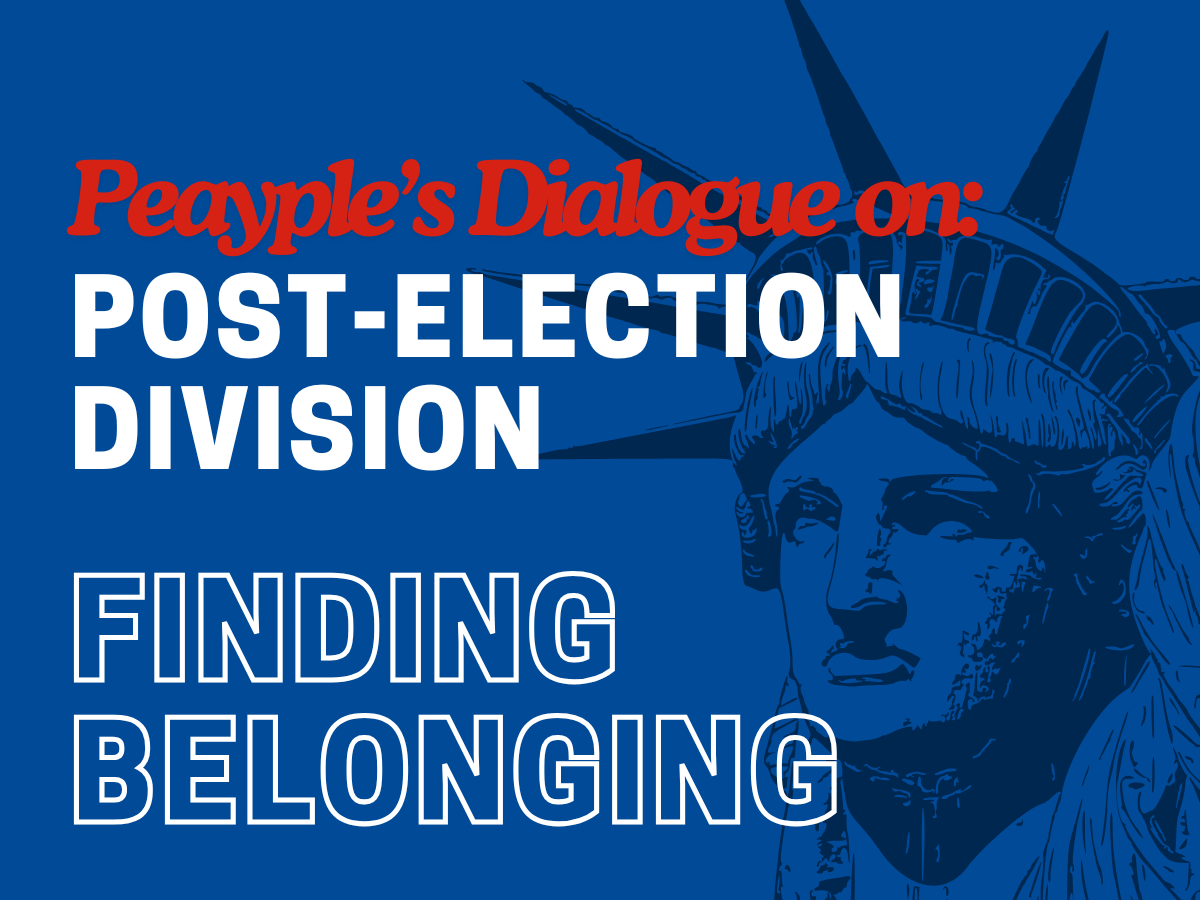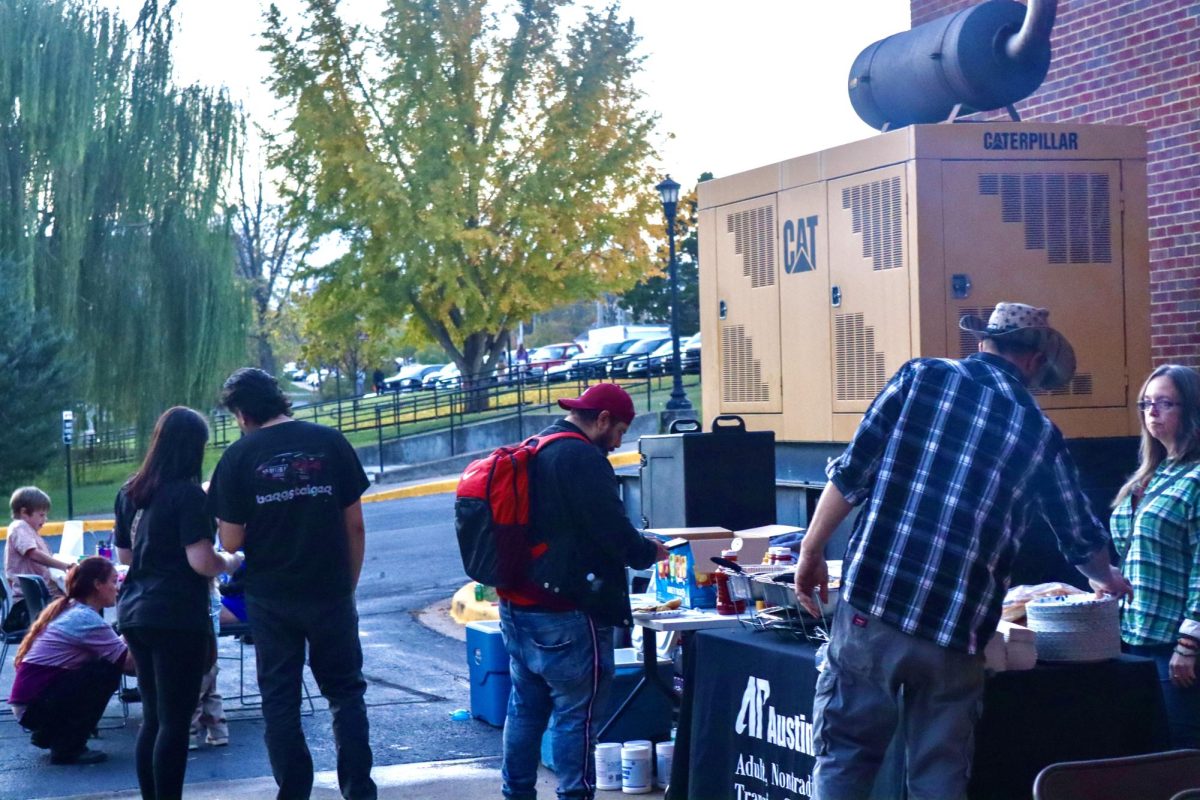On Oct. 20, 2017, senior theater performance major Briana Finley stood in the University Center Plaza as Homecoming festivities buzzed around her. With black duct tape on her mouth and a poster board beside her, she did not speak a single word to the students passing by her. In silence, her poster detailed her story, her silence loudly proclaiming “Me, too.”
Finley’s presentation that Friday was part of a class project on Fluxus art, a performance-based study. As part of the project, she was supposed to give her audience some kind of instructions and see how people reacted
“I originally thought about doing a piece on general people problems,” Finley said. “I was thinking about doing something about body issues people struggle with.”
That changed when Finley saw “#metoo” trending on social media.
“I thought that would be a better subject matter, just because it was very prominent and in the moment,” Finley said. “I knew it would be impactful for a lot of people.”
Finley did not just stand in the plaza like a statue. Passersby who saw her were encouraged to write “me too” on her body in marker, turning Finley into a monument dedicated to the prevalence of sexual assault in the community.
Finley stood in the plaza for two hours Friday, from 11 a.m. to 1 p.m. in the middle of the day, hoping to encounter the greatest number of people she could. The students’ responses, according to Finley, were emotional.
“Whether or not they signed my body, many of them hugged me, they thanked me for what I was doing. They told me I was very brave,” she said. “One girl, after she signed her name, she left, and about 45 minutes later, she brought her class and professor back out to look again at what I was doing.”
Finley said she did not expect the large number of people who stopped to sign her body and take pictures of her display.
While the project served as a mouthpiece for others to come forward with their experiences, the project held personal relevance for Finley, as well. She said she was sexually assaulted in August of 2015.
“He was a really good friend of mine; we went to high school together,” Finley said.
“We were both in theater together.”
Finley said they first became close during a theater conference when they came to APSU. They had a “brief” sexual relationship, but “broke all contact” after a while.
A week after she broke up with her then-boyfriend, she said he texted her and said he wanted to hang out.
“I told him up front, ‘I’m not sleeping with you, at all,’” Finley said. “And he said ok. So we got to his place, and we were just hanging out, and then he offered me some marijuana. And we smoked it.”
Finley said her body reacted “strangely” to it.
“I could barely speak, and I could hardly move,” she said.
Finley said he then took her to his room and undressed her.
“There were several parts where sometimes I was crying, and then times where I was completely unconscious,” Finley said. “I said ‘no’ several times; it was the only word I could get out.”
She said he brought her to Waffle House the next morning.
“He complained I was not eating my food,” she said. “After that, he took me home, I took a shower and I went to work.”
Finley said she did report him for the assault, but not to the police.
“Somebody who works at APSU found out, and then contacted a member of student affairs,” she said. “There was this investigation process and then a hearing. Ultimately, he was suspended for a year.”
Finley said her experience shaped the way she approached the project, particularly the way she invited students to participate.
“I did not want to scare them away,” she said. I know if I walked across campus and just saw someone say ‘Hey, write #MeToo,’ without any background, it would intimidate me.” This desire manifested in the poster board that accompanied her, which briefly described her experience with sexual assault and encouraged others who had also experienced it to join her, to say “I relate to you.”
“It was very meaningful for me,” Finley said. “I struggle with it every day, and I know many people, men and women, who struggle with it every day. For me, it is very empowering, and I wanted to, even just for two hours, give other people the chance to feel that.”
A photographer took pictures of her piece as credit for the project, which she submitted to her professor Wednesday. The professor said Finley should do the piece again in a few different locations to see different reactions to her presentation.
“I knew rape was a thing since I was a kid,” Finley said. “I did not believe it would happen to me until it did.”
Finley said she wanted to encourage people to speak up about sexual assault.
“I want people to be able to feel comfortable speaking out about it, instead of thinking they have to internalize it,” Finley said. “If you feel up to it, whenever you get the chance, speak out about it. Do not be afraid to report it, do not be afraid to talk about it. It is something people need to hear about.”







